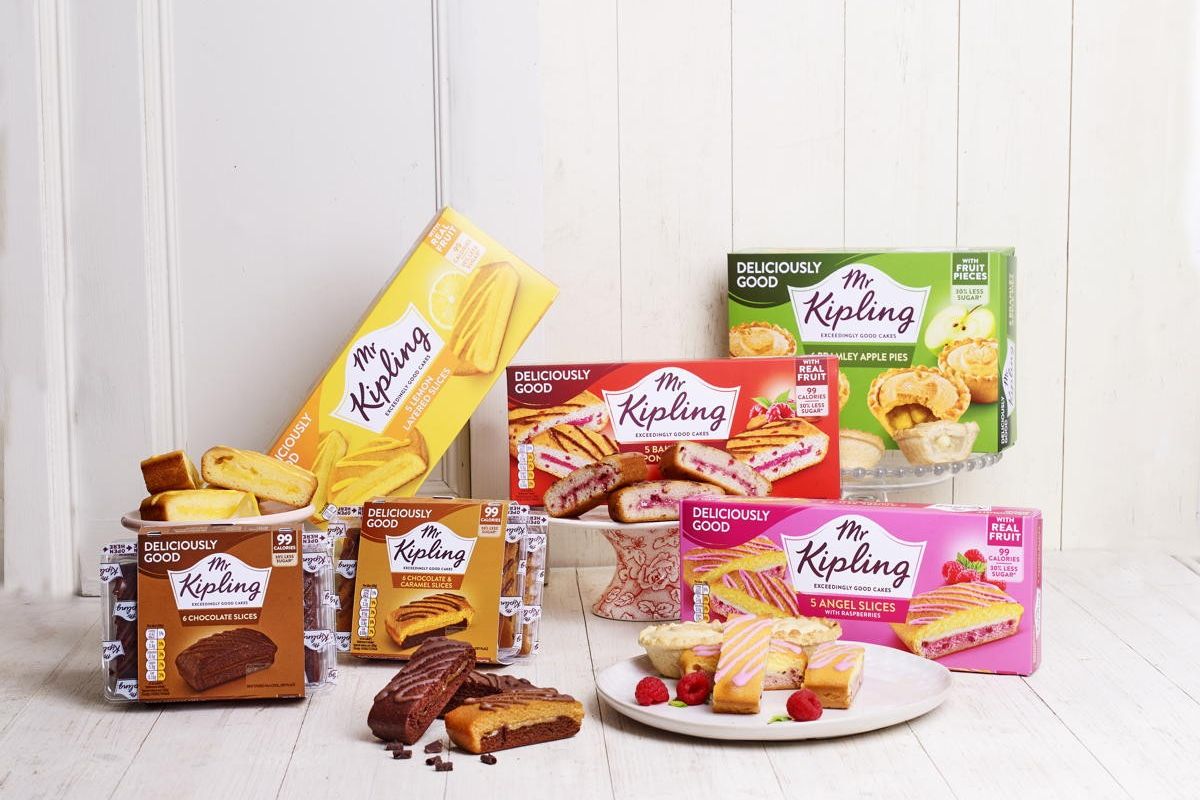Britain's Premier Foods reported a 4.6 per cent rise in half-year revenue, driven by continued growth in its grocery business and brands such as Mr Kipling, Nissin and The Spice Tailor, shows the results reported today (14).
As UK inflation eased during the first half of the year, consumers who had been cautious about non-essential spending began to loosen their purse strings. That bodes well for food manufacturers who aggressively hiked prices at the peak of a cost of living crisis over the past few years.
Pricing on average is lower than last year, CEO Alex Whitehouse said in a media call, adding that the lower pricing has led to strong volume growth for the group's grocery and sweet treats businesses.As spending trends change and in the lead up to the key Christmas season, some food manufacturers are offering temporary discounts to attract more customers.
Premier Foods said it was on track to meet full year expectations but does not give actual figures. Analysts expect revenue of 1.15 billion pounds and adjusted pre-tax profit of 161.9 million pounds for the year ending March 30, according to a company-compiled consensus.
However, volume trends are expected to normalise and per unit prices are expected to be flat compared to a year ago, rather than lower, Whitehouse said.
Premier, which makes products ranging from plain flour to cooking sauces and quick meals, reported headline revenue of 498.7 million pounds for the 26 weeks ended Sept. 30, up from 476.7 million pounds a year earlier.
Whitehouse said, “We’ve delivered another really strong branded performance in the first half, underpinned by double-digit volume growth.
"This demonstrates the success of our proven branded growth model which was also supported by sharper promotional
pricing. We gained both volume and value market share, outperforming the market as many consumers switched into our
leading brands from own label. Our innovation programme continues apace as we brought many new products to market
in the period, including Sharwood’s curry kits, Mr Kipling Loaf cakes and Loyd Grossman Pesto.”
“As inflation has begun to ease and shoppers are starting to feel more confident, we’ve seen consumers treat themselves
more, helping sales of both Mr Kipling Signature Bites and Ambrosia Deluxe more than double in the first half of the year. We’ve continued to make very good progress against all the pillars of our growth strategy.
"We accelerated capital investment in our supply chain, continuing to invest in projects to improve automation and increase efficiency, in addition to enabling growth through new product development. Angel Delight ice cream and Ambrosia porridge pots contributed to strong progress in our new categories, which grew 67 per cent, while the international business performed very well, with revenue up 31 per cent.
"We continue to be very pleased by the progress of our acquired brands, The Spice Tailor and FUEL10K and we now have the biggest selling granola product on the market.
“As we look to the second half, we have exciting plans in place across all our brands, with our best ever Mr Kipling
Signature mince pies benefitting from expanded distribution. With this, and our continued branded momentum, we are
on track to deliver on expectations for the full year. As we look further ahead, we expect revenue growth to continue to
be generated from our strategic priorities of growing our UK branded core, extending into new categories, overseas
expansion and M&A activity.”


